Faculty and Staff Explore Educational Opportunities Through Teaching & Learning Commons Grants
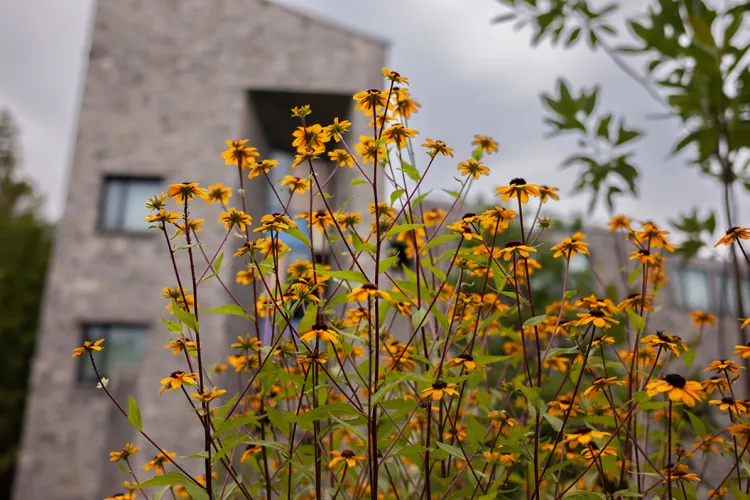
Swarthmore’s Teaching & Learning Commons (TLC) awarded 20 serendipity grants to faculty and staff this summer in support of individual and departmental education projects.
From summer reading groups and online pedagogy workshops to critical theory seminars and curriculum redevelopment meetings, faculty and staff used the grants to advance teaching and learning at Swarthmore.
“The grant offered us a window into some of the exciting work faculty and staff at Swarthmore engage in during the summer months,” says Elaine Allard ’01, associate professor of educational studies and director of the TLC. “In addition to the programming we’re building on campus, we at the TLC were really pleased to be able to support these kinds of highly specialized professional development experiences that will enhance both scholarship and teaching across the College.”
Recipients of the grants — in the areas of course and curriculum development; workshops and conferences; and summer programs, professional development, and resources — are listed below, with snapshots of their proposals.
Course and Curriculum Development
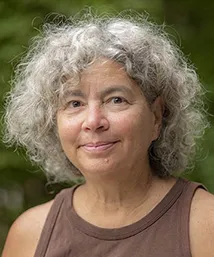
(left), professor of linguistics and social justice, and Jon Kochavi, associate professor of music, will offer a new course this spring: Music and the Senses. They will examine the nature of music from a diversity/disability perspective.
“We include music with regard to the ear, the eye, bodily movement, the somatosensory system, and neurodiversity,” they wrote. “These issues are to a great extent biological/cognitive, but interpretable via culture. We explore what notions such as rhythm, tone, melody, and dynamics mean in a variety of contexts, asking what similarities and differences there are between, for example: ordinary expression and artistic expression, musical arts and language arts, music and poetry, music and dance.”
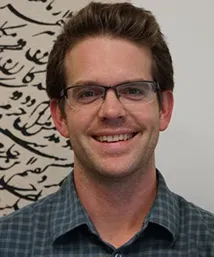
, senior associate director at the Lang Center for Civic & Social Responsibility, and Ben Smith (left), assistant professor of Arabic, will integrate a community-based learning component into a course they will co-teach.
Smith spent the past year developing his manuscript, Writing Amrika: Literary Encounters with America in Arabic Literature, which will serve as the basis of a first-year Arabic seminar. Price recently co-authored two pieces with author Yaroub Al-Obaidi — one on the role of art in local peacebuilding efforts and one on implementing the Sticky Family workshops as an anti-racist pedagogy.
Smith is excited to learn more about engaged pedagogy, and Price to learn more about Arabic literature. “We see this as an incredible opportunity to not only learn from each other, but also to create a non-hierarchical learning community within the class where we will be learners and collaborators alongside our own students and community partners in the context of the [Sticky Family] workshops,” they wrote.
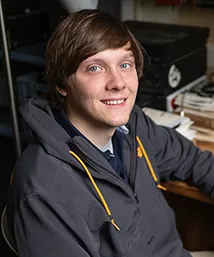
, visiting assistant professor of computer science, is developing a course called Broadcasting Technology that covers the history of radio broadcasting, analyzes historically significant broadcasts, investigates electronic equipment and software used for broadcasting, and studies modern radio broadcasting regulations.
“This course is important to the College Community because of the strong interest and history that Swarthmore has with radio broadcasting,” wrote Wehar. “The radio station (currently known as WSRN 91.5FM) has been broadcasting in some form since the 1930s. Student broadcasters would greatly benefit from having a broadcasting technology course. As learning outcomes, the students would be more capable to run their own radio programs, follow modern broadcasting rules, and meet the quality standards to engage in collegiate broadcasting competitions and conferences.”
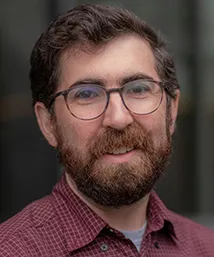
, visiting assistant professor of psychology visited Professor Vik Bejjanki at Hamilton College to develop a new course and kickstart a long-term project to boost resources for teaching undergraduates to collect, process, and interpret functional brain imaging data.
Bejjanki has been teaching courses in cognitive neuroscience in the Department of Psychology at Hamilton for seven years. This fall, Zinszer will teach Computational Methods for Psychology and Neuroscience at Swarthmore, aiming to “bridge an important gap between intro-level statistics and computer sciences courses and the highly technical work students are expected to do in a post-baccalaureate research position or graduate program.
“We plan an intensive work period to work together on course development and a broader vision to make similar undergraduate teaching resources more widely available,” wrote Zinszer. “We will discuss overarching pedagogical goals (eg, helping students to understand the relationship between time and frequency domains) and consider how each goal is best met in the specific class and lab activities that I have prepared.”
Workshops and Conferences
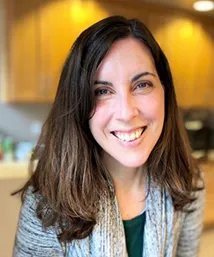
, assistant professor of English and multilingual writing specialist, participated in the Alliance to Advance Liberal Arts Colleges workshop at Middlebury College in June. The workshop focused on "Pedagogies of Relation: Using Writing to Promote Learning and Belonging in a Post-Pandemic World."
“While attending the workshop, I plan to keep a pedagogy journal in which I can record details about strategies recommended by other participants as well as specific ways I already use similar strategies or new ways I could adopt those strategies into my own writing pedagogies, including multilingual pedagogies,” Mera Ford wrote in her proposal. “The journal reflections and connections will enable me to enhance curricular materials. I plan to update the most relational parts of my assignments and lesson plans for three courses I often teach.
“The experience will also offer opportunities to network with liberal arts college colleagues in writing studies and related academic fields,” she added. “I hope the workshop's emphasis on cultivating belonging with writing will also equip me with additional approaches to try in my multilingual writing specialist work at Swarthmore, where an ongoing central goal of mine is to cultivate an affirming community of writers from diverse language backgrounds and identities.”
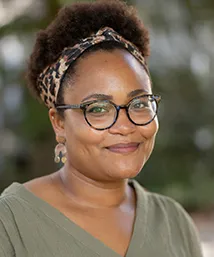
, assistant professor of psychology, attended the Faculty for Undergraduate Neuroscience Summer Workshop at Western Washington University. The teaching conference is held every three years for neuroscience faculty, emphasizing practices and approaches that promote inclusive pedagogy.
“I believe this teaching conference will help me expand my community/support circle as well as introduce me to new pedagogical approaches that I can implement in my classes,” Fobbs wrote. “Since I came from a [top-tier research institution], I don’t know many people that teach within my area at the undergraduate level. I’m hoping to meet other people in similar positions and expand my peer mentor community. Additionally, I’m excited to learn more about how other faculty teach the same material and how other schools structure their neuroscience majors.”
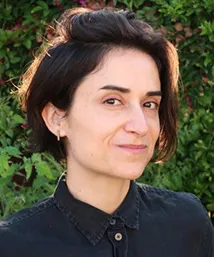
, assistant professor of art history, furthered her emphasis on solidarity practices and conceptual frameworks by attending the workshop Building Sustainable Futures: Solidarity Economies Visioning Session. Held within the program of the Counterpublic Arts Festival in St. Louis, Mo., the workshop featured experts positioned at the intersection of grassroots political activism and contemporary art practice.
“Allowing me to attend this formative experience will greatly benefit my ongoing learning on contemporary approaches to solidarity, share insights on how I practice solidarity in the classroom and my scholarly practice, and meet other individuals with similar interests in the U.S.,” Checa-Gismero wrote. “The workshop is part of a larger arts festival in the city of St. Louis that proposes a model for contemporary art-making that is driven by a commitment to social and environmental justice based on trans-group alliances within and beyond traditional art worlds.”
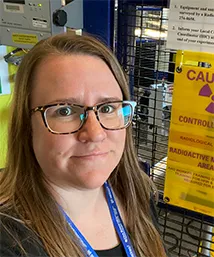
, assistant professor of physics, participated in a workshop organized by the Data Science Education Community of Practice at the University of Maryland. This is a group of physics faculty who have received a grant from the American Physical Society (APS) Innovation Fund to form a community of physicists committed to incorporating data science into the undergraduate physics curriculum.
“I see this as an excellent opportunity to be introduced to participants in the community,” wrote Smith. “Data science is a rapidly emerging career option for STEM students, especially physics students who receive extensive training in problem-solving. However, specific skills related to data science do not exist explicitly in the Swarthmore Physics Department course offerings. I am interested to learn about ways that other educators have incorporated data science into their physics teaching, ranging from integration of activities and modules into existing courses to fully independent data science courses. I anticipate sharing key outcomes from the workshop with my department, and thinking about ways that it will inform my teaching.”
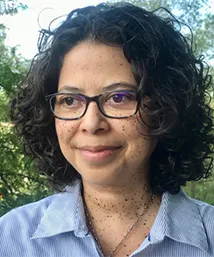
, visiting assistant professor of linguistics, attended two online programs: NFCDD Teaching Toolkit and Teaching RaceTalk as a Skill. She pursued them to “enhance my teaching skills in general and, more specifically with respect to curriculum, to more deeply integrate discussions about race and language, and the intersections with other positionalities.
“My aim is to revise my sociolinguistics and Intro Linguistics syllabi, taking into account student feedback and my own observations of past iterations of the course,” wrote Fuller Medina. “For example, finding ways to create more streamlined assignments that meet both pedagogical goals and align with more efficient and effective grading. In addition, I’m interested in deepening my approach to creating inclusive communities of learning. I have benefited in the past from structured writing programs and expect to draw similar benefits from the Teaching Toolkit, which offers structure and opportunity to be in community for live sessions.”
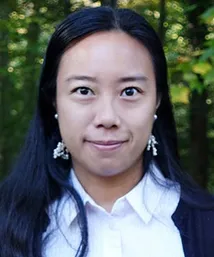
, assistant professor of biology, participated in the joint workshop Assessment in Biology between the Society for the Advancement of Biology Education Research and the American Microbiology Society. The seven-week webinar series included live webinars, pre-webinar prompts, and assignments.
“Participating in this webinar series will help me better align the learning objectives in my courses with assessment,” wrote Chan. “Presentation content and discussion would also help me continue to build a more inclusive and safe learning environment for our diverse student body. The webinar is particularly timely, as I am slated to coordinate the large (100+ students) intro biology course next spring. The syllabus and assessment are the two most student-facing course components, and developing these two components will provide meaningful learning opportunities. This webinar series is also an excellent networking opportunity to meet peers who are concerned about undergraduate biology teaching.”
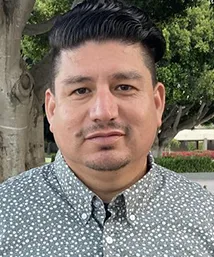
, assistant professor of sociology, attended a critical theory workshop in Paris this July.
“As part of the workshop, I’ll be presenting a paper and getting feedback from other attendees,” Rangel wrote. “My panel will deal with comparative analysis of migrant reception in Europe and the U.S. This is a great opportunity to not only benefit from other scholars working within the critical theory tradition, but also to enable me to stay on top of work relevant to my own that is being carried out around the world.”
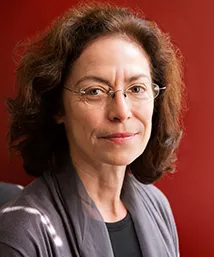
, professor of environmental studies and coordinator of environmental justice and climate resiliency, advanced her own and her students’ professional development in the field of community-based environmental justice research. She co-presented two conference papers with four recent Swarthmore grads at two national conferences this summer focused on their community-engaged scholarship in collaboration with community partners in Chester and North Philadelphia.
“The conference papers explore my approach to engaged pedagogy and participatory action research, with a focus on my environmental studies course Environmental Justice: Theory and Action,” Di Chiro wrote. “The four students (Tyler White ’22, Chantal Reyes ’22, Anna Considine ’23, and Sarah Chang ’23) will discuss their experiences and reflect on how working in partnership with a local environmental justice organization through this community-engaged course transformed their understandings of the relationship between knowledge and action and influenced their academic trajectories.”
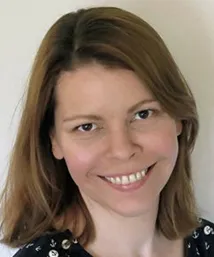
, associate professor of Spanish, attended the Annual Congress organized by the Institute des Amériques (IdA), one of the most relevant French academic organizations devoted to the interdisciplinary study of the Americas. It took place in Lyon, France, in June.
“IdA valorizes various scientific approaches from a comparatist, trans-American and transdisciplinary standpoint, thus contributing to the emergence of new problematics and methodological approaches,” wrote Díaz. “The congress will tackle a wide range of themes with a cross-disciplinarity approach to promote a broader dialogue in the field of inter-American or comparatist studies. It will include keynote presentations, roundtable discussions, workshops, film screenings, and art exhibitions.”
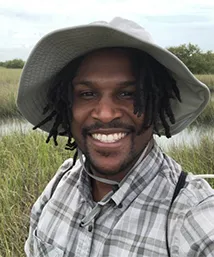
, laboratory instructor, biology, attended the Mangrove Macrobenthos and Management (MMM6) conference at the Universidad de los Andes and Universidad de Cartagena in Colombia.
“My thesis work was accepted to be presented at this conference, and I believe attending will help me further my career as an instructor,” Creecy wrote. “This would be my first conference presentation, and conferences are an integral part of being a scientist. One of the maxims I teach to my students is that ‘science did not happen unless it was communicated.’ Scientific communication is a large focus of our biology labs, so any experience with communication builds my educational foundation to better instruct my students and enrich my experience as a scientist.”
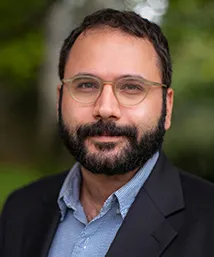
, visiting assistant professor of political science, traveled to Reykjavik, Iceland to participate in an author-meets-critics roundtable for his recently published monograph, Dying Abroad: The Political Afterlives of Migration in Europe (Cambridge University Press, 2023).
“Having the opportunity to participate in an author-meets-critics roundtable will advance my professional and career development by bringing greater public attention to my scholarship,” he wrote. “The Council for European Studies Conference draws academics from both the U.S. and Europe, and thereby presents a unique opportunity to network with scholars whom I would not otherwise meet in Philadelphia. As a contingent faculty member, these sorts of meetings are incredibly important for career advancement.”
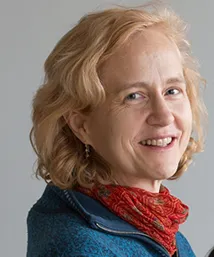
, Alexander Griswold Cummins Professor of English, planned to attend the writing workshop “Applying (and Getting In to) Residencies,” organized by Blue Stoop, before it was canceled. The workshop was aimed to lead writers through every step of the writing-residency application process.
Summer Programs, Professional Development & Resources
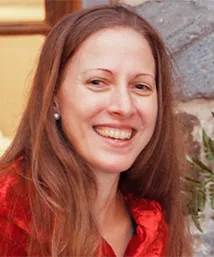
, academic support coordinator, used the grant to support a summer pilot in which she used an online math program, ALEKS, to provide structured review for a group of students planning to take Math 15. The students had her requested support, and Dandridge had good experiences with the program in the past.
“It is often helpful to review math topics before taking Math 15, and/or Math 25,” she wrote. “Both of these courses require students to have knowledge of algebra and pre-calculus topics, and Math 25 requires students to have knowledge of topics covered in a first semester calculus course. It is especially important to review if you scored low on the Readiness Exam, if you scored borderline on the Calculus Placement Exam, or if you haven't taken a math class for an extended period of time.”

, Protestant student advisor, Interfaith Center, pursued a certificate in mental health and spirituality at the University of Redlands. The program builds upon her work in these areas within the Interfaith Center and in conjunction with the Student Health and Wellness Center and Counseling and Psychological Services (CAPS) in the past year.
“I believe that taking courses toward this certificate will increase my capacity to be of assistance to students both within and outside of the Interfaith Center, and will enable me to bring more programs for mental health and wellness in conjunction with spirituality to the college campus,” LaBelle wrote. “I already co-lead Awakened Awareness seminars each semester, which are mind/body/spirit workshops meant to improve student resilience and connection to their inner spirit. I believe taking formal courses in mental health and spirituality will enhance my ability to lead these workshops, help me to bring other resources to the students in this area of wellness and mental health, and be a better collaborator with other offices that work toward student wellness.”
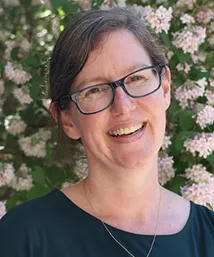
, associate dean of academic success, organized a summer book reading of organizational psychologist Adam Grant's Think Again: The Power of Knowing What You Don't Know. The book explores rethinking and the value of mental flexibility and tackles "how we can embrace the joy of being wrong, bring nuance to charged conversations, and build schools, workplaces, and communities of lifelong learners."
“We look forward to reading the book independently and then gathering in small groups over lunch to discuss the book,” Derickson wrote. “Depending on interest level and funding, we are open to exploring whether colleagues from other departments or students might want to join, too. We selected the book through divisionwide input. There was also significant interest in the book Set Boundaries, Find Peace: A Guide to Reclaiming Yourself by Nedra Tawwab."
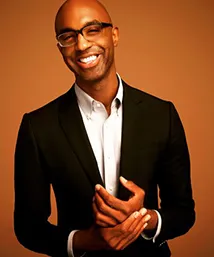
, associate professor of educational studies and chair of Black Studies, organized a summer book club and inquiry group for core faculty affiliated within Black Studies.
“The five texts selected for the book club will inform the timely (re)design of the Introduction to Black Studies course, as well as provide a contemporary knowledge base for this inquiry group to conduct a curriculum review of course offerings in Black Studies,” he wrote.
The five texts are Matthew Desmond’s Poverty, by America; Jarvis R. Given’s Fugitive Pedagogy: Carter G. Woodson and the Art of Black Teaching; Nikole Hannah-Jones’ The 1619 Project: A New Origin Story; Peniel E. Joseph’s The Third Reconstruction: America’s Struggle for Racial Justice in the 21st Century; and Isabel Wilkerson’s Caste: The Origins of Our Discontents.



